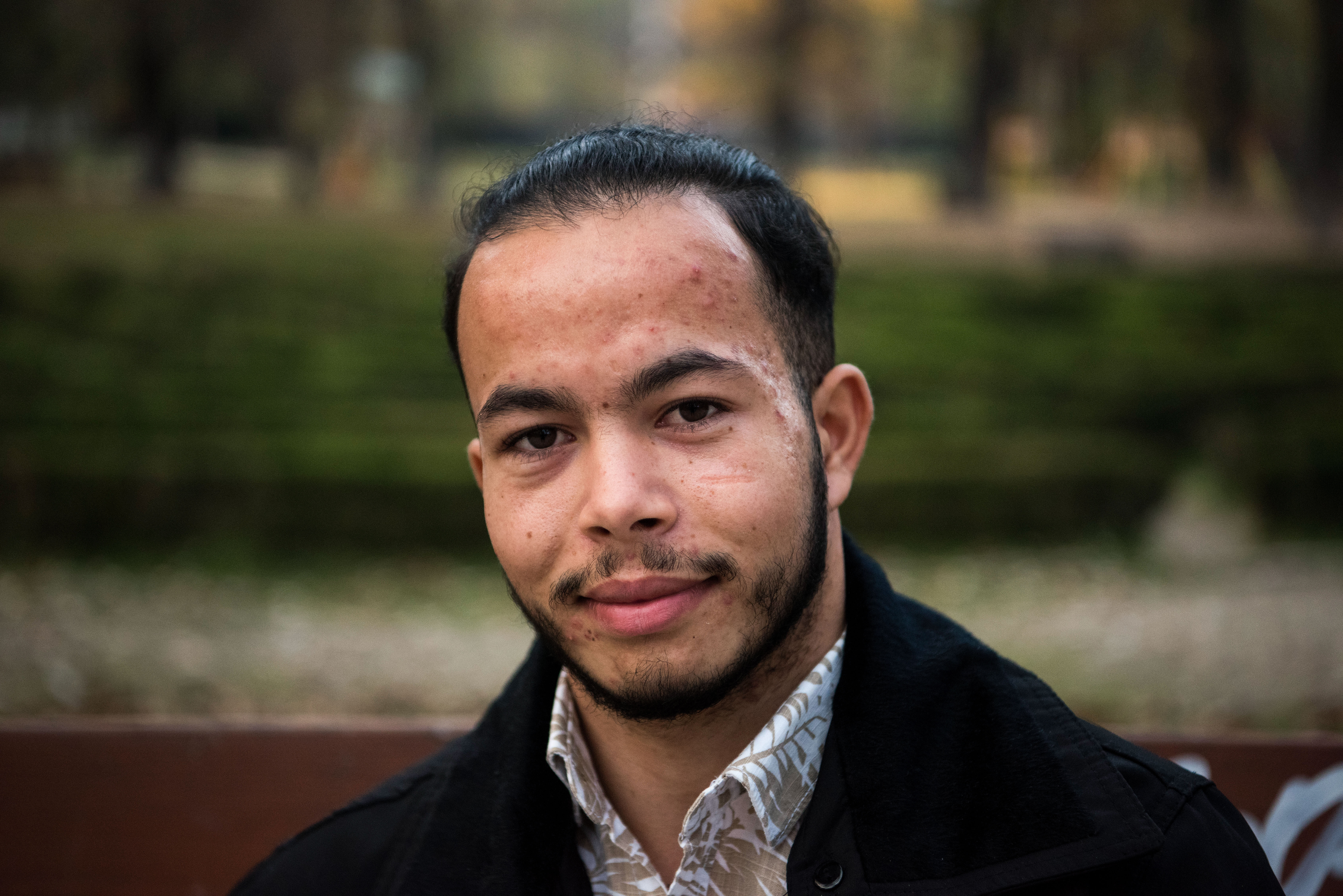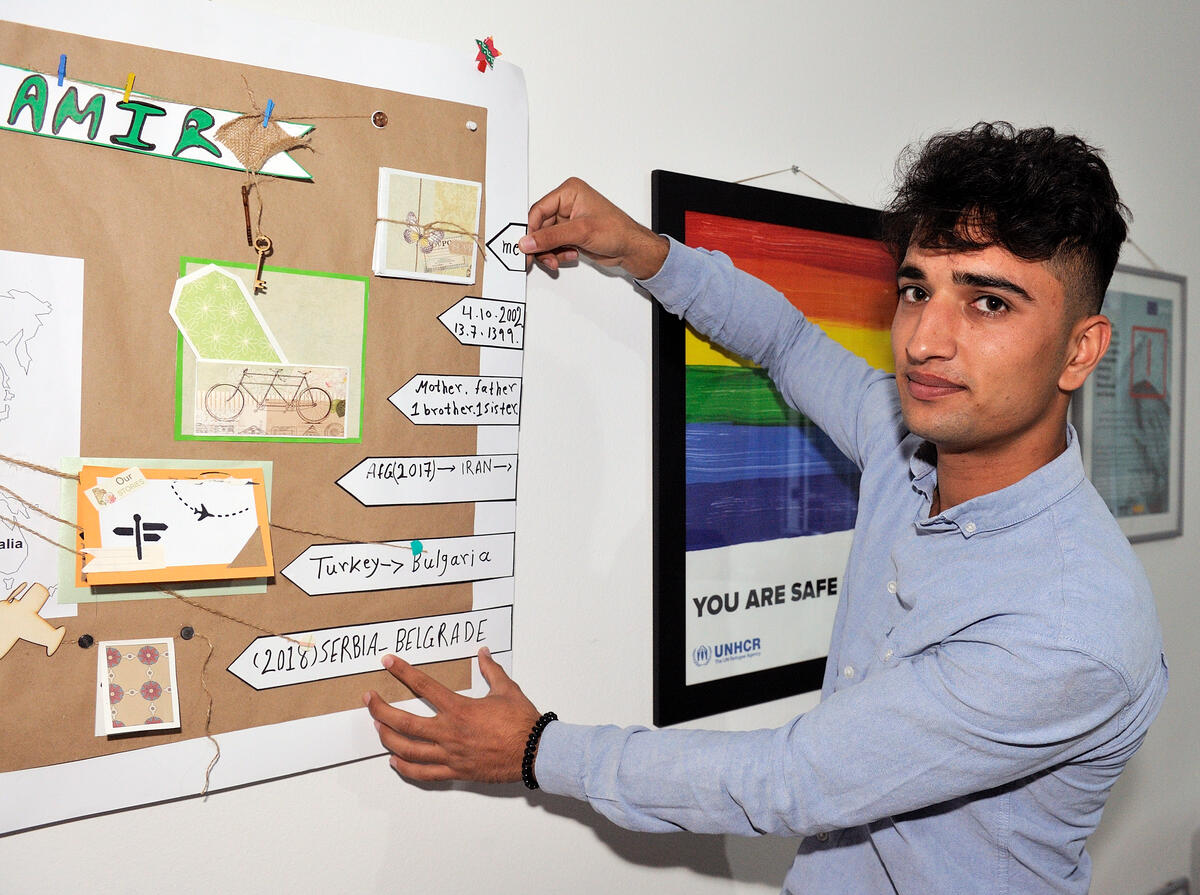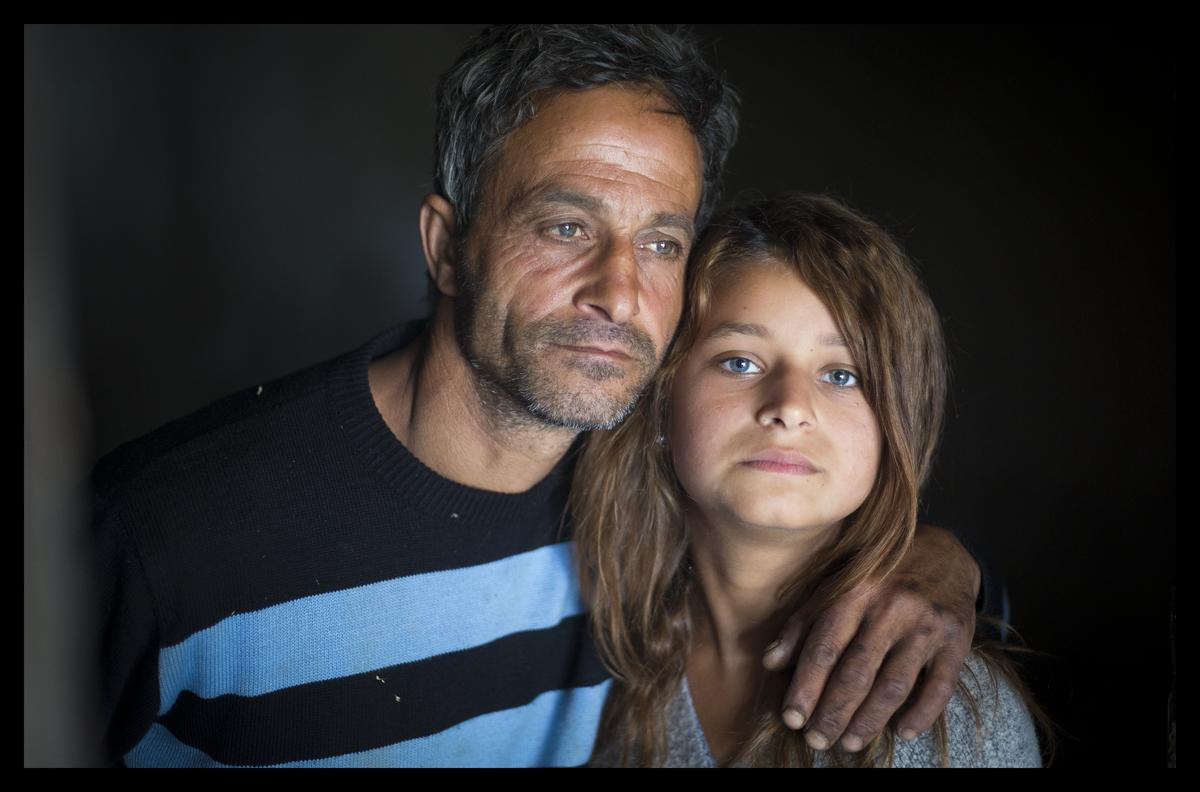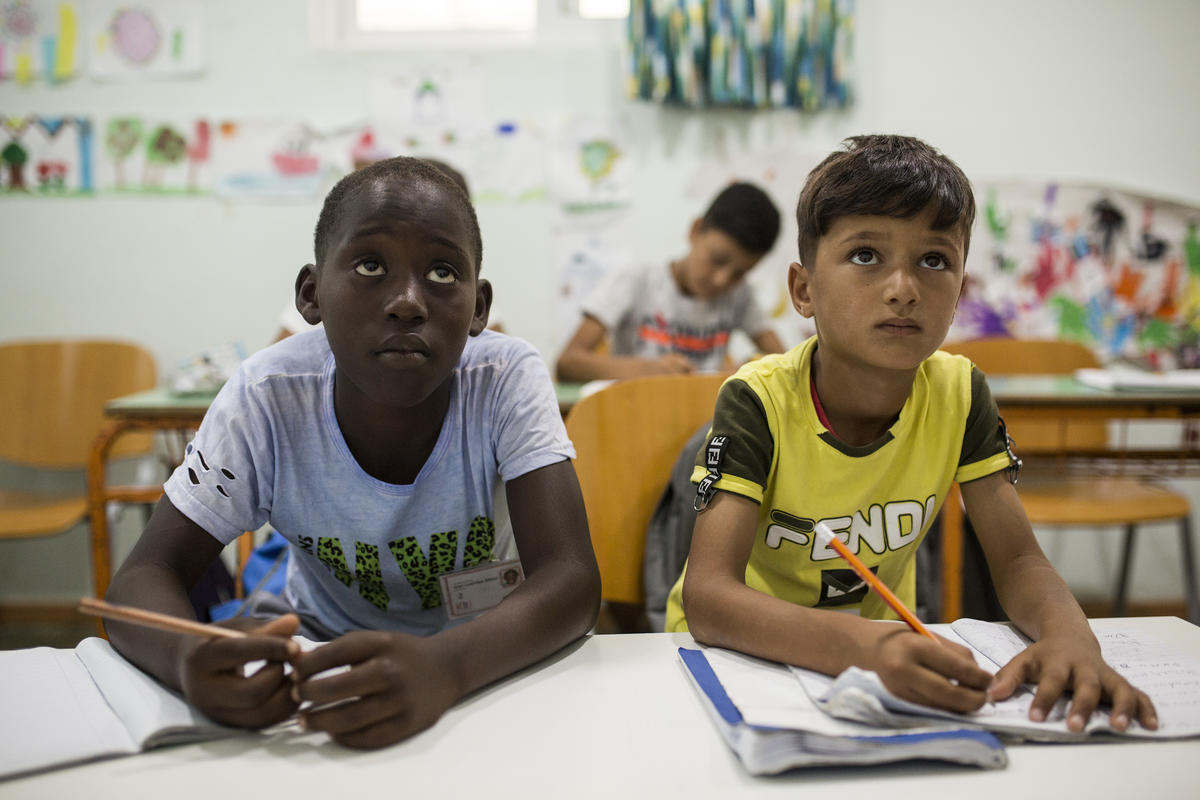Kosovo Crisis Update
Kosovo Crisis Update
Kosovo
Preliminary results of a survey of 141 of 2,000 villages in central Kosovo show that 64 percent of the housing stock in the areas assessed suffered severe damage or complete destruction.
UNHCR, with help from scores of NGOs, international organizations, UN agencies and KFOR, began conducting the survey a week after it resumed operations in Kosovo.
The results show that although more than 600,000 Kosovars have returned from neighbouring territories, thousands have not been able to return to their homes of origin. Of those questioned who have not gone back to their original homes, 76 percent cited damage to their dwellings as the reason for their continued displacement; 31 percent mentioned lack of access to food and other basic needs; just 7 percent pointed to insecurity or fear.
Results from the 141 villages reveal that 64 percent of the housing stock in those areas suffered severe damage or complete destruction. Another 20 percent sustained slight or moderate damage. Of the villages surveyed, 102 were also part of a January 1999 assessment. Comparing data from the previous survey done by UNHCR indicates a twofold increase in severely damaged homes and a near tripling of those destroyed since March.
The level of destruction in Kosovo is extremely varied. Some areas, such as the ones surveyed, are heavily destroyed. Others were barely touched.
Obviously, shelter assistance in the heavily impacted zones is of major importance. To meet emergency shelter needs, UNHCR is bringing in 30,000 tents, 15,000 tent stoves, 183,333 plastic sheets, more than 20,000 shelter repair kits and tons of other building materials ranging from timber to door and window frames to roofing material. But longer term rehabilitation is urgently needed, requiring other organizations specialized in long-term development to start reconstruction work before winter begins.
Food availability has been dramatically reduced over the past three months as shops were looted or destroyed and farm production ground to a halt. Wheat was available in just 35 percent of the 141 villages; oil in 28 percent; sugar in 23 percent; fruit in 18 percent, coffee in 12 percent and meat in 7 percent.
About 40 percent of water sources are contaminated, many by household rubbish or animal and human remains. Eighty-eight percent of the surveyed villages lacked functioning health facilities and more than half of the facilities surveyed were completely destroyed or sustained severe damage.
So far, UNHCR has supplied 7,365 tents; 28,948 plastic sheets; 248,995 blankets; 132,336 mattresses; 148,152 hygiene kits; more than 2 tons of soap and 3,010 kitchen sets.
Minorities
Despite repeated appeals by UNHCR and other agencies, attacks on Serb and Roma minorities in Kosovo continue.
Seventy eight Roma people arrived at the Macedonian border crossing at Blace on Thursday after fleeing from Lipljan and other nearby areas south of Pristina. In Montenegro, 200 Roma have arrived in the port of Bar by train since 2 July. They came from Pristina, Pec and Kosovska Mitrovica.
Ethnic Albanian youths armed with rocks attacked a Serb household in Urosevac on Thursday after it refused demands to hand over its live rabbits, injuring a man and his wife, a UNHCR team from Skopje reported. The two were forced to seek refuge at the Urosevac clinic, where 30 elderly Serbs have encamped for eight nights waiting for international troops to escort them to Vranje in Serbia proper.
UNHCR staff report 21 Serb houses have been burned in Prizren in the past 48 hours. Around 360 Roma left their houses in Djakovica's Brekovac area on Tuesday and gathered around the mined graveyard close to the town centre. At least 14 houses have been torched at Brekovac and some Roma taken away by the Kosovo Liberation Army for interrogation. The group is asking to be evacuated to Montenegro.
In Prizren, there are still 130 Serbs in the Orthodox seminary at Bogoslavija, under German KFOR protection. Other Serbs from Prizren have moved to villages in the Strpce area, a Serb enclave on the road to Urosevac. Up to 10,000 Serbs are reportedly in this area.
The Serb community in Orahovac is also asking to be taken out of the area. Most of the Serbs have moved from surrounding villages to the upper part of the town where they live in a ghetto-like area under Dutch KFOR protection. Thirty to forty elderly Serb women are staying in the Orthodox church there and are very frightened.
FR of Yugoslavia
UNHCR now estimates that around 100,000 people from Kosovo, mainly Serbs but also including Roma, have left Kosovo and sought safety in the FR of Yugoslavia (Serbia and Montenegro) and are in urgent need of assistance
If emergency aid is not immediately provided to these people, 40 to 50 percent of whom are children under 16 years of age, UNHCR believes their situation could turn desperate when winter comes.
Many of them arrived with no possessions. Some came by tractor or, the few wealthier ones, by car. Many of the arrivals are staying with family and friends. Some are staying in 30 collective centres, mostly schools. These schools have to be vacated by August, when classes begin. No alternative arrangements are currently available.
In addition, some 40,000 of the 530,000 mainly ethnic Serb refugees from Croatia and Bosnia and Herzegovina who have been in the FR of Yugoslavia for years are still living in overcrowded collective centres, many of which are in dire need of repair and upgrading.
The current situation allows only ad hoc distribution of emergency items. Continued delivery of relief goods will largely depend upon what priority the international community gives to the needs of these displaced people.
War damage has created enormous logistical challenges for relief agencies operating in the FR of Yugoslavia, with current fuel shortages an ongoing problem.
FYR of Macedonia
Around 1,630 refugees returned from the FYR of Macedonia to Kosovo on Thursday, bringing the total returns to 211,300.
The Macedonian government is conducting a new registration of the remaining refugees living with host families, who are now believed to number around 15,000. UNHCR's figure for the population remaining in the country will be revised accordingly when the exercise is completed.
A number of refugees who had gone into Kosovo are believed to have returned to the FYR of Macedonia, either to pick up their families or to remain, because they found that they have no homes to return to in Kosovo. For example on Thursday, 151 refugee card holders returned to Macedonia.
At Cegrane camp, 50 refugees with their children gathered in front of the UNHCR office holding placards saying "Don't forget us." They were ethnic Albanian refugees from Presevo and Bujanovac, towns in Serbia proper. This group is among the 3,500 refugees remaining in Cegrane, once a bustling community of 40,000 people but which now looks like a ghost town.
UNHCR opened two new offices in Tetovo and Kumanovo this week to organize repatriation of refugees in host families and help those remaining there.
Albania
Looters armed with automatic weapons have descended on refugee camps in central and southern Albania that have been abandoned since the repatriation movements began in mid-June.
UNHCR and its implementing partners have been moving relief supplies and equipment left behind in camps. Convoys carrying water and sanitation equipment, tents, plastic sheeting and generators are now heading into Kosovo.
On Tuesday, armed looters went to Dersnic camp in Korce but were repulsed by private security guards. AFOR troops have been deployed in the area to prevent looting. In Durres, as remaining refugees were consolidated into one camp, looters in tractor-wagons stripped empty camps of tents and equipment on Tuesday, as private security guards watched helplessly. In Elbasan, the Turkish camp has been sacked and set on fire.
Repatriation continued with 7,796 refugees returning on Thursday, including 993 who joined UNHCR's convoys. So far, 374,000 refugees have returned from Albania, including 4,931 who went back with UNHCR's help.
Republic of Montenegro
UNHCR is organizing a second repatriation convoy from Montenegro on Friday. A total of 320 refugees went on UNHCR's convoy of six buses from the coastal town of Ulcinj heading for Kosovo, where it is expected later in the day.
On Thursday, 1,204 Kosovars returned spontaneously to Kosovo, bringing the overall returns to 50,500.








